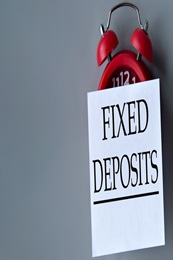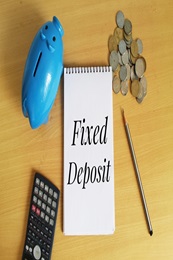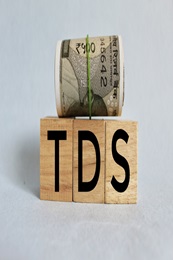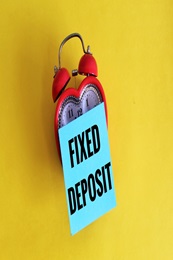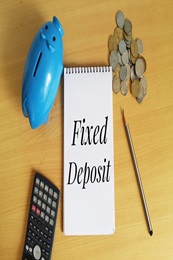6 Proven Tips for Best FD Returns
April 15, 2025
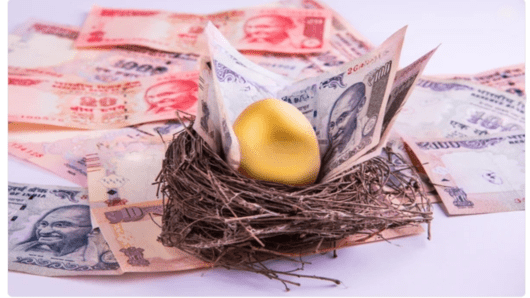
When it comes to investments, fixed deposits (FDs) are a popular choice among risk-averse investors. FDs offer guaranteed interest rates, making them a secure investment option.
However, to truly maximise your FD returns, it's necessary to understand the various factors that can influence your earnings. In this blog post, we have explored some smart tips and strategies that can help you get best FD returns. Let's dive in!
Factors to Consider to Get Best FD Returns
1. Consider Cumulative Fixed Deposit Plan
There are two types of FDs - cumulative and non-cumulative. For cumulative deposits, the total amount (principal and interest) is paid at the time of maturity of your FD. The interest earned is compounded every year and reinvested along with the principal amount till maturity, resulting in higher overall returns.
2. Utilising a Ladder Investment Strategy
Investing in a cumulative FD means that you will receive interest along with the principal amount only at maturity. But what if you have an urgent financial requirement before maturity? This is where a ladder investment strategy may come in handy.
Instead of investing the entire amount in a single FD, split it into multiple FDs with different maturity tenures. For example, if you want to invest ₹5 lakh, divide it into five parts and invest ₹1 lakh each in FDs with maturities of 1 year, 2 years, 3 years, 4 years, and 5 years. This way, you will have one FD maturing every year, providing liquidity. Also, with this strategy, you can also make the most of returns via
short-term FDs.
However, there are a few factors you may consider before opting for FD laddering.
Factors to Consider Before Opting for FD Laddering:
- Setting Your Investment Goals: You should be clear about your investment goals. Align the timing of your FDs based on that.
- Risk and Reward Balance: Assess how much risk you are comfortable with and choose the investment amount accordingly. Typically, FDs carry minimal risk, however, you may consider liquidity concerns before investing.
- Planning for Urgent Needs: Consider your financial needs and set up your FD ladder strategy accordingly so that you can access money when needed without incurring early withdrawal fees.
- Understanding Tax Implications: The interest income is taxable as per your tax slab. Take into account how taxes will affect your overall returns and plan accordingly.
- Knowing the Fine Print: Familiarise yourself with the rules regarding early withdrawal, renewal, and interest rates to avoid any surprises.
3. Avoid Breaking your FD Before Maturity
Early or premature withdrawals can have a significant impact on your returns. When you make a premature withdrawal, the financial institution would calculate the interest rate basis your current FD tenure and not the tenure you had initially selected. This will have an impact on your returns. Also, you may be liable for penalty charges for early withdrawal.
4. Submit Form 15G and 15H
If the interest earned on your fixed deposit exceeds a specific threshold, the income tax department will deduct TDS as per the Income Tax Act. However, you can avoid a TDS deduction on your corporate fixed deposit by submitting either Form 15G or Form 15H (for senior citizens).
5. Start FDs for Parents (Senior Citizens)
f your parents are senior citizens, opening a fixed deposit in their name can help you earn higher interest rates on FDs. Additionally, your parents can save on taxes by submitting form 15G and 15H.
6. Look for Small Finance Banks
Small Finance Banks (SFBs) generally offer higher FD rates compared to traditional banks. Additionally, SFBs offer various FD schemes to meet various financial goals. And investing in these FDs is very simple, you need minimal documents and the entire application process is mostly digital.
Bonus Tip: Use FD Returns Calculator
Use an FD ROI Calculator to calculate your returns. All you need to do is enter your deposit amount, select the tenure, interest payout (cumulative or quarterly) and tenure. Once done, you will be able to check the returns on your investment. So, before investing, select different tenures and amounts to calculate and compare your ROI and invest accordingly.
Final Thoughts
Run through these factors to achieve best FD returns. Use FD ROI calculator to compare and calculate returns.
Looking to grow your savings? Ujjivan SFB offers a wide range of fixed deposit products. Select the FD of your choice and take a step forward to your financial goals. Alternatively, you can browse through Ujjivan SFB product suite - our wide range of financial products are designed to make your financial life better.
FAQs
1. How do I choose the best fixed deposit plan?
To choose the best fixed deposit plan, consider factors such as interest rates, ratings of the scheme, and your financial goals.
2. Can I withdraw my fixed deposit before maturity?
Yes, you can withdraw your fixed deposit before maturity. However, it may result in reduced returns due to penalties and lower interest rates.
3. What is a cumulative fixed deposit plan?
In a cumulative fixed deposit plan, the interest is added to the principal amount at regular intervals, resulting in higher overall returns due to compounding interest.
4. How can I avoid TDS on my fixed deposit?
You can avoid TDS on your fixed deposit by submitting Form 15G or Form 15H (for senior citizens) if the interest earned exceeds a specified threshold.
5. Can I open a fixed deposit for my parents?
Yes, you can open a fixed deposit in your parents' name. Senior citizens often get higher interest rates, and it can also help save income tax.
6. How to choose the right fixed deposit tenure?
There is no right or wrong tenure for your fixed deposit. Your tenure should align with your liquidity needs and the financial goals you have in mind.
7. Are there risks involved with investing in fixed deposits for long tenures?
Long-term fixed deposit investments come with their share of risks. These include the risk of reinvestment especially at reduced prevailing interest rates, liquidity risk where there is lack of access and inflation risk.
8. What is the penalty associated with premature withdrawal of fixed deposit?
Typically, banks would charge an individual anywhere between 0.5% to 1.0% of the interest rate for premature withdrawal.
Latest Blogs

Telangana Housing Board & KPHB Colony: A Guide to Affordable Urban Housing in Hyderabad
March 14, 2025
As Telangana continues its rapid urbanisation journey, two key housing entities—Telangana Housing Board (THB) and Kukatpally Housing Board Colony (KPHB)—have played critical roles in shaping the state's real estate ecosystem.

Does Checking CIBIL Score Frequently Lower Your Credit Points?
April 07, 2025
Imagine you're planning to apply for a home loan, a credit card, or even a car loan. Naturally, you want to ensure your CIBIL score is in good shape before proceeding.

Explained: Can NRIs Buy an Agricultural Land in India?
April 03, 2025
Real estate investment is often a top priority for Non-Resident Indians (NRIs) looking to retain strong financial ties to India.

How to Improve Your CIBIL Score from 600 to 750: A Step-by-Step Guide
April 02, 2025
Your CIBIL score is like your financial reputation—banks check it before approving loans or credit cards. If your score is hovering around 600, you might face difficulties in securing credit or may get loans with higher interest rates.

What Happens When You Leave Your Savings Account Unused?
April 01, 2025
Imagine waking up one day to find that your hard-earned money is locked away and inaccessible. Sounds stressful, right? This is precisely what happens when you leave your Savings Account inactive for too long.

